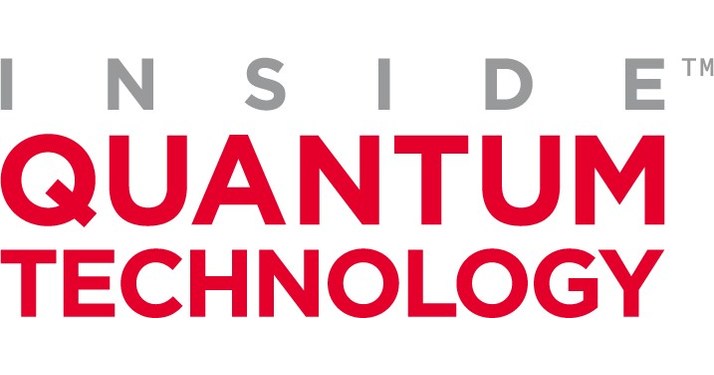
By Kenna Hughes-Castleberry posted 30 Nov 2023
Quantum News Briefs: November 30th 2023:
IQT 2024 WORLD TOUR EVENTS ANNOUNCED
Speaker and sponsorship opportunities are now available for 2024 IQT events taking place in
The Hague (April), Vancouver/PacificRim (June), Helsinki/Nordics and New York City
(November). Early bird registration is available for all 2024 events. Additional information for
upcoming conferences can be found at www.iqtevent.com.
First standardized, mass-produced quantum chips sold to overseas market

SpinQ Technology, a Shenzhen-based quantum computing startup, has become the first Chinese company to deliver superconducting quantum chips overseas, specifically to a Middle Eastern research institution. These chips are crucial in the quantum computing industry, offering exponentially greater computing capability than classical computing. Established in 2018, the company has already made significant strides in the field, including the release of its superconducting quantum chip, Shaowei, in April this year. This chip is one of the few standardized and mass-produced superconducting quantum chip products worldwide. SpinQ Technology’s advancements include establishing a superconducting quantum computer research center and a production line in the Hetao Shenzhen-Hong Kong Science and Technology Innovation Cooperation Zone. Additionally, the firm has secured deals with multiple companies across the globe and released a programmable desktop quantum computer, Gemini, and a portable quantum computer, Gemini Mini. The company’s internationalization strategy promotes global cooperation in the quantum computing industry. According to McKinsey & Co., the quantum computing market is projected to be worth up to $93 billion by 2040, with the total potential of the quantum technology market expected to reach $106 billion.
University of Chicago Researchers invent new way to stretch diamond for better quantum bits

Researchers at the University of Chicago, Argonne National Laboratory, and Cambridge University have announced a significant result in quantum network engineering. They have developed a method to “stretch” thin films of diamond, creating quantum bits (qubits) that are easier to control and operate with less equipment and expense. This technique significantly raises the operating temperature of the systems, making them less resource-intensive. The key achievement here is maintaining qubit coherence at temperatures up to 4 Kelvin (-452°F), which is much higher than previous requirements and can be managed with less specialized equipment. Additionally, the new method allows for controlling qubits using microwaves instead of light, increasing the system’s fidelity to 99%. This breakthrough, combining prolonged coherent time and feasible quantum control, marks a major step toward developing practical diamond-based devices for quantum networks. The study, which brings a new perspective to the material science of quantum technologies, has been published in Physical Review X.
Telecom’s Quantum Future: Unprecedented Longevity in Entanglement Storage

Physicists have significantly advanced quantum technology by substantially improving quantum storage times at telecom wavelengths, a key step toward practical quantum networks. These results, detailed in Nature Communications by Prof. Xiao-Song Ma’s group at Nanjing University, involve achieving record-long quantum storage on a platform that can be integrated into existing fiber optic networks. Unlike classical signals, quantum states of light, especially those entangled, cannot be amplified using standard techniques without losing their unique quantum properties. The solution lies in quantum repeaters, which maintain the entangled state and enable long-distance quantum communication. The team used yttrium orthosilicate crystals doped with erbium ions, matching the telecom wavelength of around 1.5 µm, to store and retrieve entangled telecom photons for almost two microseconds, nearly 400 times longer than previous attempts. This development preserves entanglement over extended periods and integrates with a novel source of entangled photons on an integrated chip, paving the way for a quantum internet that can be aligned with existing fiber networks.
In Other News: Vox article: “Christopher Fuchs is revolutionizing how we understand our quantum reality:”

A new article from Vox highlights that Christopher Fuchs, a physicist at the University of Massachusetts Boston, is pioneering a new interpretation of quantum mechanics known as QBism, diverging sharply from traditional theories like the Copenhagen and many-worlds interpretations. QBism, developed by Fuchs and his colleagues, introduces a radical subjectivity to quantum mechanics, suggesting that quantum probabilities reflect personal beliefs rather than an objective reality. This view positions reality as a participatory drama where each observer plays a vital role in shaping their experience, thus challenging conventional ideas about the observer’s role in the universe and potentially influencing quantum computing and information science. While controversial and viewed by some as a departure from objective scientific inquiry, Fuchs’s approach underscores a disruptive but potentially transformative perspective in physics. His extensive work on QBism, reminiscent of the intellectual depth of historical scientist-philosophers, suggests that progress in understanding our universe may come from unconventional approaches and questioning established norms.
Kenna Hughes-Castleberry is the Managing Editor at Inside Quantum Technology and the Science Communicator at JILA (a partnership between the University of Colorado Boulder and NIST). Her writing beats include deep tech, quantum computing, and AI. Her work has been featured in Scientific American, Discover Magazine, New Scientist, Ars Technica, and more.
- SEO Powered Content & PR Distribution. Get Amplified Today.
- PlatoData.Network Vertical Generative Ai. Empower Yourself. Access Here.
- PlatoAiStream. Web3 Intelligence. Knowledge Amplified. Access Here.
- PlatoESG. Carbon, CleanTech, Energy, Environment, Solar, Waste Management. Access Here.
- PlatoHealth. Biotech and Clinical Trials Intelligence. Access Here.
- Source: https://www.insidequantumtechnology.com/news-archive/quantum-news-briefs-november-30th-2023-iqt-2024-world-tour-events-announced-first-standardized-mass-produced-chinese-quantum-chips-sold-to-overseas-market-telecoms-quantum-future-unprec/




